Cheul Young Park
Separating Content from Speaker Identity in Speech for the Assessment of Cognitive Impairments
Mar 21, 2022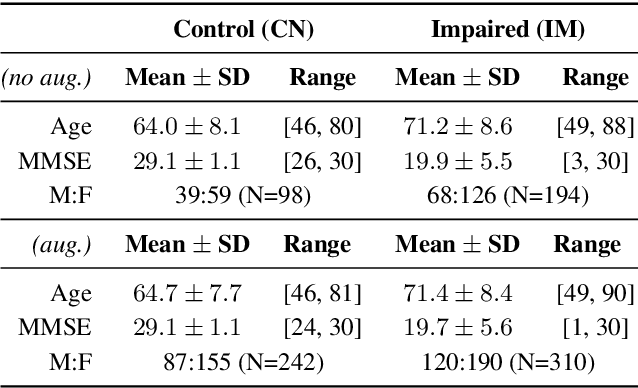

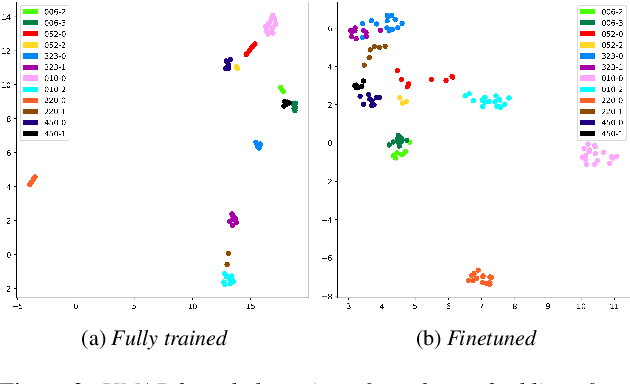
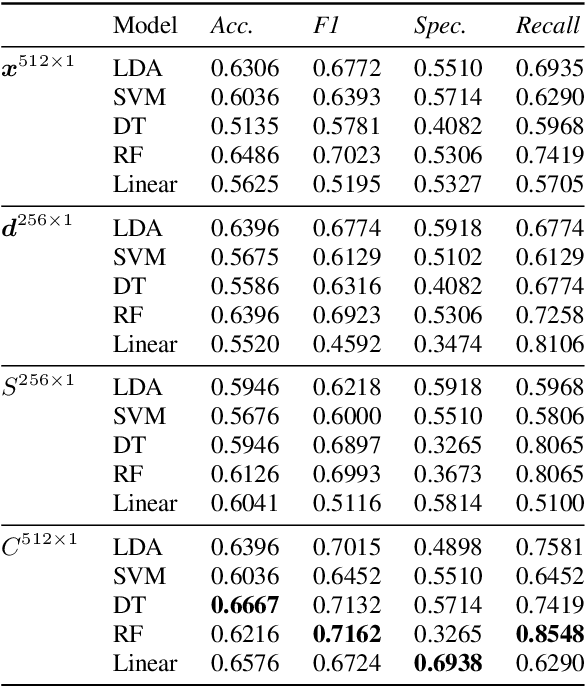
Abstract:Deep speaker embeddings have been shown effective for assessing cognitive impairments aside from their original purpose of speaker verification. However, the research found that speaker embeddings encode speaker identity and an array of information, including speaker demographics, such as sex and age, and speech contents to an extent, which are known confounders in the assessment of cognitive impairments. In this paper, we hypothesize that content information separated from speaker identity using a framework for voice conversion is more effective for assessing cognitive impairments and train simple classifiers for the comparative analysis on the DementiaBank Pitt Corpus. Our results show that while content embeddings have an advantage over speaker embeddings for the defined problem, further experiments show their effectiveness depends on information encoded in speaker embeddings due to the inherent design of the architecture used for extracting contents.
K-EmoCon, a multimodal sensor dataset for continuous emotion recognition in naturalistic conversations
May 19, 2020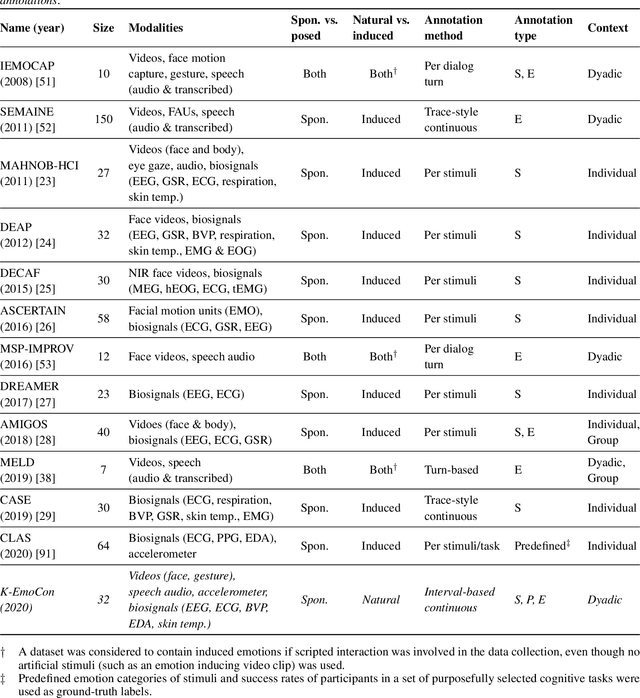

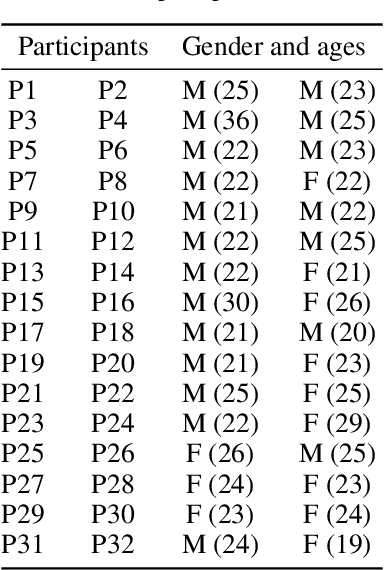
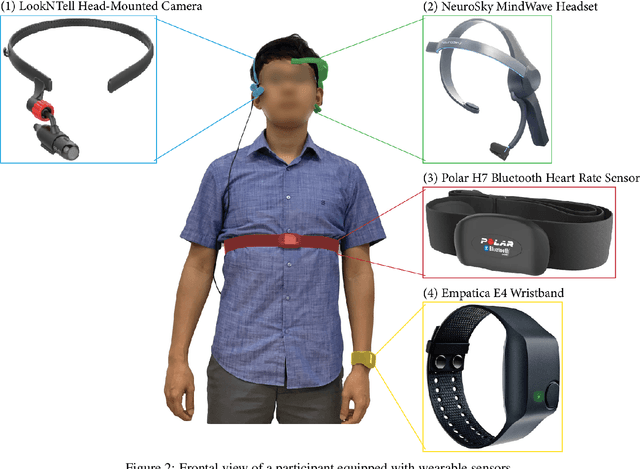
Abstract:Recognizing emotions during social interactions has many potential applications with the popularization of low-cost mobile sensors, but a challenge remains with the lack of naturalistic affective interaction data. Most existing emotion datasets do not support studying idiosyncratic emotions arising in the wild as they were collected in constrained environments. Therefore, studying emotions in the context of social interactions requires a novel dataset, and K-EmoCon is such a multimodal dataset with comprehensive annotations of continuous emotions during naturalistic conversations. The dataset contains multimodal measurements, including audiovisual recordings, EEG, and peripheral physiological signals, acquired with off-the-shelf devices from 16 sessions of approximately 10-minute long paired debates on a social issue. Distinct from previous datasets, it includes emotion annotations from all three available perspectives: self, debate partner, and external observers. Raters annotated emotional displays at intervals of every 5 seconds while viewing the debate footage, in terms of arousal-valence and 18 additional categorical emotions. The resulting K-EmoCon is the first publicly available emotion dataset accommodating the multiperspective assessment of emotions during social interactions.
 Add to Chrome
Add to Chrome Add to Firefox
Add to Firefox Add to Edge
Add to Edge